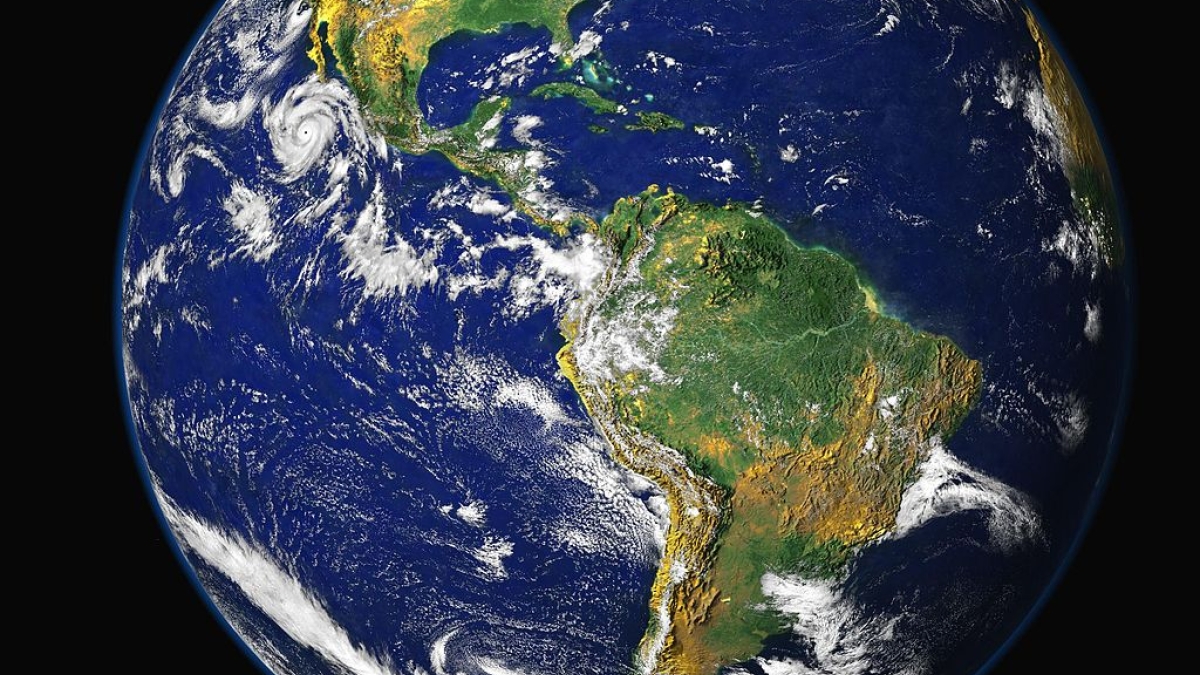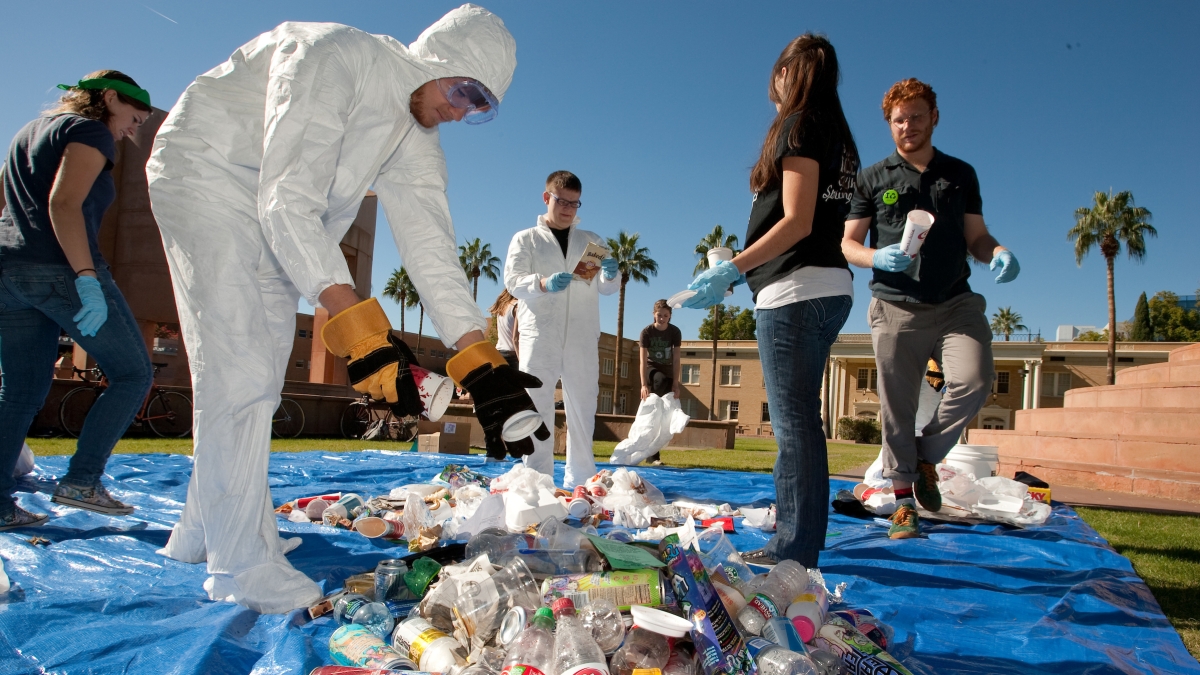The road to Paris: 9 things you can do to influence the UN climate talks
A climate-change advocate visits ASU to talk about what interested observers can do to contribute to global conference

In December, thousands of delegates from 196 countries will meet in Paris for the United Nations Climate Change Conference.
As evidence grows of glaciers and ice caps melting, oceans warming and sea levels rising, current commitments to greenhouse-gas emissions are slated to expire in 2020. The goal of the summit is to produce an agreement that will last for a decade beyond that, hopefully longer.
Previous climate summits have failed, for a variety of reasons. Though it may seem fruitless to hope to affect the outcome of a global summit from thousands of miles away, at least one person disagrees. A climate-change advocate who has attended every international summit since 2012 visited Arizona State University on Thursday morning to talk about what interested observers can do to contribute.
Natalie Lucas is executive director of Care About Climate, an organization that works on climate education, mitigation and adaptation projects around the world. She will be attending the negotiations in Paris from Nov. 30 through Dec. 11.
The Paris talks are expected to end in a universal and legally binding agreement — not a treaty — for all major countries that produce the most greenhouse gases.
Lucas discussed nine things you can do to influence the summit.
1) Get your city, campus, business or community to commit support, whether in the form of a statement or by acting in some of the ways described below. Convincing your mayor to send a letter to the State Department can be a coup.
2) Talk about it. Be vocal on social media, talk about it with friends and family, let people know this is an important issue. “Write to your local newspaper,” Lucas said. “The work we do here is most important.”
3) Write to the State Department. Share stories about how climate change affects you. “They respond more to stories because they hear facts and figures all the time,” Lucas said. “Tell them about the awful storms we get here.”
4) Talk to your congressional representatives, even if they are climate-change doubters. Though they might not act on your suggestions, a significant volume of people speaking up sends a signal to them. “Let them know people out there care about this, and that they’ll eventually be voted out of office if they don’t act,” Lucas said.
5) March. On Nov. 29, a global march is scheduled to send a visible signal of concern.
6) A climate strike is scheduled for Nov. 30. Skipping classes or work isn’t always a great idea; Lucas said spending an afternoon volunteering for a local group like the Citizens’ Climate Lobby might be a more viable option.
7) March again. A second global march is slated for the day after the summit.
8) Vote in next year’s presidential election. “Put someone in the White House who cares about these things,” Lucas said.
9) Join groups such as the Sierra Club or the Citizens’ Climate Lobby. Next year the states will develop plans under President Barack Obama’s Clean Power Plan. Groups like those will play a role in influencing lawmakers.
Lucas' talk was sponsored by ASU's Julie Ann Wrigley Global Institute of Sustainability.
More Environment and sustainability

Celebrating Earth Day around the world
Originating in the United States in 1970, Earth Day is now celebrated worldwide. But even before it became an official day, many countries were already mindful of their carbon footprint in their…

A run on fossil fuels: ASU professor says climate legislation could have unintended consequences
As concerns about climate change grow, policymakers are increasingly voicing support for stricter fossil fuel legislation. Their discussions and proposals raise questions about the future of the oil…

Confusion complicates US recycling efforts
In most major cities and buildings, recycling bins can often be found alongside trash bins in an effort to encourage recycling. But is it working? According to the U.S. Environmental Protection…